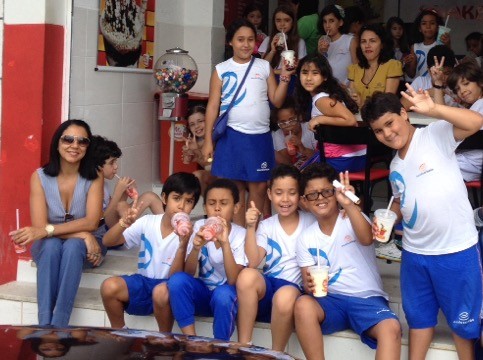Teaching kids effective communication skills is crucial for their overall development and future success. Effective communication skills go beyond just speaking and listening; they encompass a range of abilities that contribute to positive interactions, relationships, and academic achievement. Here are several reasons highlighting the importance of teaching kids effective communication skills:
1. Social Interaction:
- Building Relationships: Effective communication is essential for establishing and maintaining positive relationships with peers, teachers, and family members.
- Conflict Resolution: Kids with strong communication skills can express their thoughts and feelings, leading to healthier conflict resolution and problem-solving.

2. Academic Success:
- Expressing Ideas Clearly: Clear communication is vital for academic success. Kids who can express their thoughts and ideas coherently are more likely to excel in various subjects.
- Participation in Class: Effective communication allows children to actively participate in class discussions, ask questions, and seek clarification.
3. Emotional Intelligence:
- Understanding Emotions: Communication skills help kids recognize and express their emotions, as well as understand the feelings of others.
- Empathy: Effective communication fosters empathy, enabling children to relate to and connect with others on an emotional level.
4. Confidence Building:
- Expressing Themselves: Kids with strong communication skills feel more confident expressing themselves, sharing their achievements, and discussing their concerns.
- Public Speaking: Effective communication prepares children for public speaking opportunities, promoting confidence in presentations and group discussions.
5. Critical Thinking:
- Articulating Thoughts: The ability to articulate thoughts and ideas fosters critical thinking skills. Kids who can communicate effectively are better equipped to analyze, evaluate, and synthesize information.
- Asking Questions: Effective communication encourages curiosity, leading to the development of critical thinking skills through asking questions and seeking information.
6. Problem-Solving:
- Negotiation and Compromise: Communication skills enable kids to negotiate and find compromises in various situations, promoting effective problem-solving.
- Collaboration: Effective communication is essential for collaborative projects, where children learn to work together toward common goals.
7. Self-Advocacy:
- Expressing Needs and Preferences: Teaching kids how to communicate their needs and preferences helps them become effective self-advocates.
- Seeking Support: Children with strong communication skills are more likely to seek support when needed, whether from teachers, parents, or peers.
8. Respectful Interactions:
- Active Listening: Effective communication includes active listening, which teaches kids the importance of respecting others’ opinions and perspectives.
- Positive Feedback: Kids with good communication skills can provide constructive and positive feedback, fostering a culture of mutual respect.
9. Preparation for Future Careers:
- Interview Skills: Effective communication is a valuable skill in job interviews and professional settings.
- Teamwork: The ability to communicate well is crucial for successful teamwork and collaboration in future careers.
Incorporating activities that focus on verbal and non-verbal communication, active listening, and emotional expression can significantly contribute to the development of these skills in children. The benefits of effective communication extend well beyond the classroom, influencing various aspects of a child’s life and setting the foundation for success in the future.












